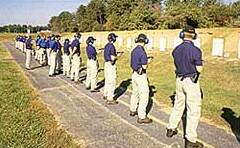Federal Investigative Service
| Agency overview | |
|---|---|
| Formed | January 26, 2021 |
| Jurisdiction | Keflistan |
| Headquarters | FIS Headquarters Building Kefli City |
| Motto | Fidelity, Bravery, Integrity |
| Employees | 1,293 (March 31, 2021) |
| Annual budget | $50.9 million (FY 2021) |
| Agency executives |
|
| Parent agency | Department of Justice |
The Federal Investigative Service (FIS) is the domestic intelligence and security service of Keflistan and its principal federal law enforcement agency. Operating under the jurisdiction of the Keflistan Department of Justice. A leading counter-terrorism, counterintelligence, and criminal investigative organization, the FIS has jurisdiction over violations of all categories of federal crimes. The FIS is primarily a domestic agency, maintaining 10 field offices in major cities throughout the country.
Budget, mission, and priorities
In the fiscal year 2021, the Agency's total budget was approximately $50.9 million.
The FIS's main goal is to protect and defend Keflistan, to uphold and enforce the criminal laws of Keflistan, and to provide leadership and criminal justice services to federal, provincial, municipal, and international agencies and partners.
Currently, the FIS's top priorities are:
- Protect Keflistan from terrorist attacks
- Protect Keflistan against foreign intelligence operations and espionage
- Protect Keflistan against cyber-based attacks and high-technology crimes
- Combat public corruption at all levels
- Protect civil rights,
- Combat transnational/national criminal organizations and enterprises
- Combat major white-collar crime
- Combat significant violent crime
- Support federal, provincial, local and international partners
- Upgrade technology to enable, and further, the successful performances of its missions as stated above
Organization
Organizational structure
The FIS is organized into functional branches and the Office of the Director, which contains most administrative offices. An executive assistant director manages each branch. Each branch is then divided into offices and divisions, each headed by an assistant director. The various divisions are further divided into sub-branches, led by deputy assistant directors. Within these sub-branches there are various sections headed by section chiefs. Section chiefs are ranked analogous to special agents in charge.
Four of the branches report to the deputy director while two report to the associate director. The functional branches of the FIS are:
- Intelligence Branch
- National Security Branch
- Criminal, Cyber, Response, and Services Branch
- Science and Technology Branch
- Information and Technology Branch
- Human Resources Branch
Rank structure
The following is a listing of the rank structure found within the FIS (in ascending order):
- Field Agents
- New Agent Trainee
- Special Agent
- Senior Special Agent
- Supervisory Special Agent
- Assistant Special Agent-in-Charge (ASAC)
- Special Agent-in-Charge (SAC)
- FIS Management
- Deputy Assistant Director
- Assistant Director
- Deputy Chief of Staff
- Chief of Staff
- Deputy Director
- Director
Infrastructure
The FIS is headquartered in Kefli City, with 9 field offices in major cities across the country. Many specialized FIS functions are located at facilities in Prestonburg, as well as a "data campus" in Vitoria, where millions of sets of fingerprints "from across Keflistan are stored."
Personnel

The FIS has a total of 1,293 employees. That includes 636 special agents and 100 support professionals, such as intelligence analysts, language specialists, scientists, information technology specialists, and other professionals.
FIS directors
FIS Directors are appointed (nominated) by the President of Keflistan and must be confirmed by the Federal Senate of Keflistan to serve subject to resignation or removal by the President at his/her discretion.
The FIS director is responsible for the day-to-day operations at the FIS. Along with the Deputy Directors, the director makes sure cases and operations are handled correctly. The director also is in charge of making sure the leadership in any one of the FIS field offices is manned with qualified agents.
Firearms
Upon qualification, an FIS special agent is issued a full-size Grouse 10 or compact Grouse 15 semi-automatic pistol, both of which are chambered in the 9mm cartridge. New agents are issued firearms, on which they must qualify, on successful completion of their training at the FIS Academy. The Grouse 15 (subcompact 9mm Parabellum), Grouse 11 and 12 (.40 S&W compact and subcompact, respectively) are authorized as secondary weapons. Special agents are also authorized to purchase and qualify with the Grouse 20 in .45 ACP.